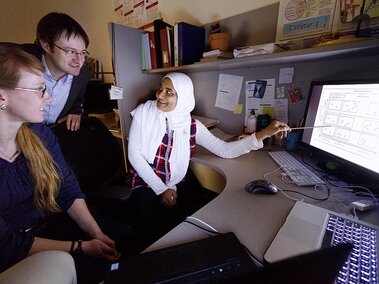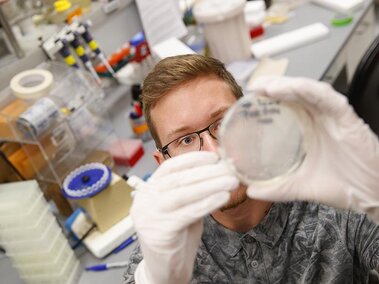The Complex Biosystems PhD program is designed to facilitate interdisciplinary graduate training at the forefront of big data approaches to life sciences research.
The program is directed toward students interested in answering research questions in the life sciences using quantitative approaches to data acquisition and analysis. In this interdisciplinary program, graduate students participate in a full year of research rotations (three total) on diverse topics, with one semester of laboratory teaching experience. In the first year of study, students consider "big questions" in the life sciences and learn current technical and analytical approaches to address them. In addition to scientific communication skills and ethical research conduct, students acquire a foundation in life sciences, statistics, bioinformatics, and computational analysis.

Upon completing their first year, each student pursues a training specialization within Complex Biosystems. Advantages to the student include the breadth of choices available for research projects and an interdisciplinary educational approach, which add value by enhancing perspective and breadth of knowledge in the life sciences.
The Complex Biosystems program aims to produce highly competent professionals with the strong communication, collaboration, and team building skills needed for success in a scientific career.
